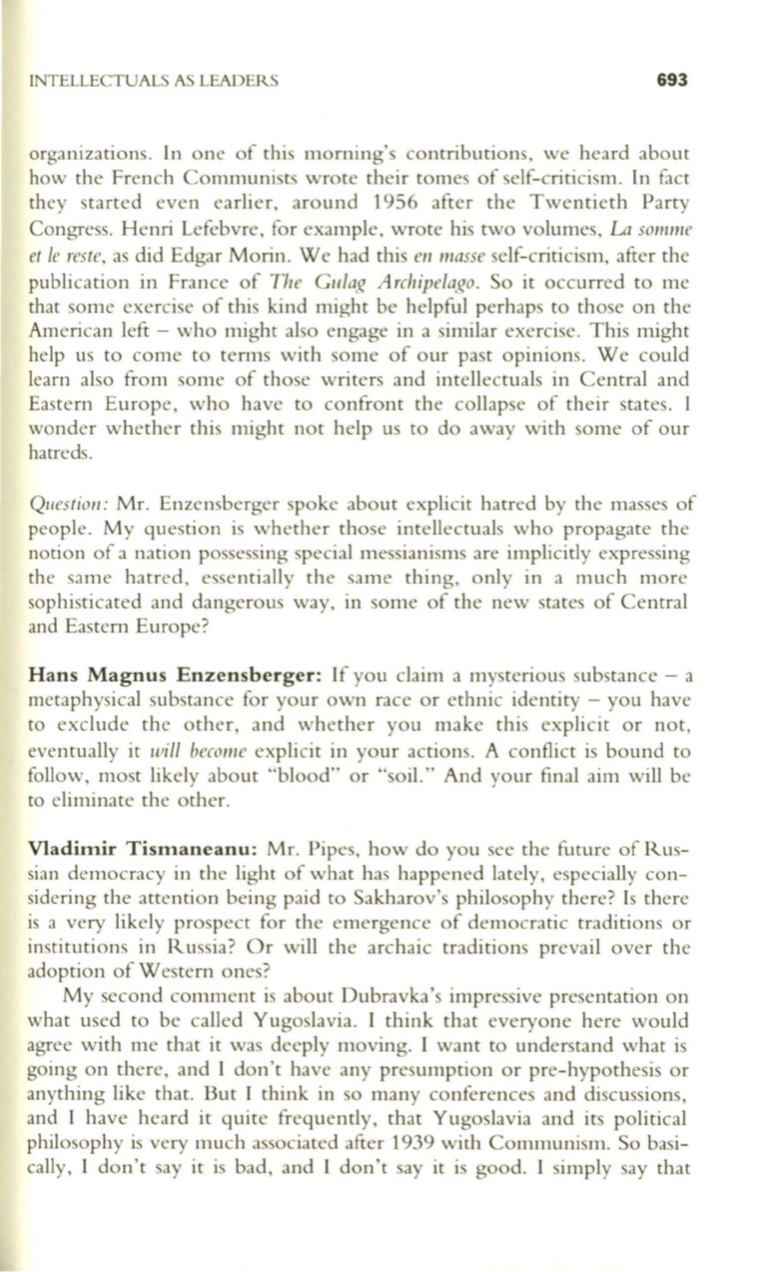
INTELLECTUALS AS LEADERS
693
organizations. In one of this morning's contributions, we heard about
how the French Communists wrote their tomes of self-criticism. In fact
they started even earlier, around 1956 after the Twentieth Party
Congress. Henri Lefebvre, for example, wrote his two volumes,
La
somme
et Ie reste,
as did Edgar Morin. We had this
el1 masse
self-criticism, after the
publication in France of
The Glliag Archipelago.
So it occurred to me
that some exercise of this kind might be helpful perhaps to those on the
American left - who might also engage in a similar exercise. This might
help us to come to terms with some of our past opinions. We could
learn also from some of those writers and intellectuals in Central and
Eastern Europe, who have
to
confront the collapse of their states. I
wonder whether this might not help us to do away with some of our
hatreds.
Qllestioll:
Mr. Enzensberger spoke about explicit hatred by the masses of
people. My question is whether those intellectuals who propagate the
notion of a nation possessing special messianisms are implicitly expressing
the same hatred, essentially the same thing, only in a much more
sophisticated and dangerous way, in some of the new states of Central
and Eastern Europe?
Hans Magnus Enzensberger:
If you claim a mysterious substance - a
metaphysical substance for your own race or ethnic identity - you have
to exclude the other, and whether you make this explicit or not,
eventually it
will become
explicit in your actions. A conflict is bound to
follow, most likely about "blood" or "soil." And your final aim will be
to eliminate the other.
Vladintir Tisntaneanu:
Mr. Pipes, how do you see the future of Rus–
sian democracy in the light of what has happened lately, especially con–
sidering the attention being paid to Sakharov's philosophy there? Is there
is a very likely prospect for the emergence of democratic traditions or
institutions in Russia? Or will the archaic traditions prevail over the
adoption of Western ones?
My second comment is about Dubravka's impressive presentation on
what used to be called Yugoslavia. I think that everyone here would
agree with me that it was deeply moving. I want to understand what is
going on there, and I don't have any presumption or pre-hypothesis or
anything like that. But I think in so many conferences and discussions,
and I have heard it quite frequently, that Yugoslavia and its political
philosophy is very much associated after 1939 with Communism. So basi–
cally, I don't say it is bad, and I don't say it is good . I simply say that


